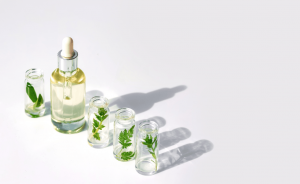Plant-Based APIs and Natural Extracts Drive Pharmaceutical Advancements in the EAEU
The global plant-based API market is projected to grow from approximately USD 32.4 billion in 2025 to USD 57.5 billion by 2034, reflecting a compound annual growth rate (CAGR) of around 6.1%. This expansion is driven by the pharmaceutical sector's shift toward natural compounds, which offer bioactive properties for drug development while aligning with sustainability goals. In the EAEU, this trend is amplified by investments in local biodiversity and advanced extraction technologies, enabling the creation of high-purity APIs from regional plants and herbs.
Manufacturers are innovating in several critical areas to harness natural extracts for pharmaceutical applications:
- Adaptogens and Stress-Relief Compounds: Siberian ginseng and ashwagandha are being explored for neuroprotective drugs and therapies for stress-related disorders, leveraging their adaptogenic effects to support mental health.
- Bioactive Compounds: Antioxidants, anti-inflammatories, flavonoids, and carotenoids are advancing drug candidates for inflammation, cancer, and cardiovascular diseases, with enhanced bioavailability through nano-encapsulation and green extraction methods.
- Plant-Derived Excipients: Starch and cellulose are increasingly used as fillers and binders in medicines, helping to form tablets and control drug release.
- Targeted Therapeutic Ingredients: Established extracts such as quinine, digoxin, and vincristine remain central to therapies in malaria, cardiovascular care, and oncology.
Challenges and How Pharmtech & Ingredients Helps Address Them
These challenges also bring opportunities. Supply chain vulnerabilities caused by geopolitical shifts and climate-related raw material shortages demand resilient solutions. Pharmtech & Ingredients directly addresses this through its matchmaking programme, connecting regional pharmaceutical buyers with international suppliers, controlled-environment agriculture pioneers, and nutraceutical suppliers. Exhibitors and visitors can build the partnerships needed to diversify sourcing and strengthen cross-border resilience.
Also, stringent regulatory requirements for purity and efficacy often create barriers for SMEs and emerging biotech firms. Pharmtech & Ingredients offers tailored support through its expert-led conference programme and direct access to regulators. SMEs gain practical guidance on compliance pathways, discover opportunities for partnerships with established manufacturers, and can leverage the harmonised EAEU framework to scale across five countries through a single approval process.
Pharmtech & Ingredients 2025
Taking place November 25–28, 2025, at Crocus Expo, Pharmtech & Ingredients stands at the forefront of this sector, providing a vital platform to navigate these dynamics. With over 560 exhibitors and over 10,000 visitors from more than 27 countries, the exhibition features a dedicated zone for natural extracts and plant-based APIs, alongside:
- Ingredient Discovery & Sourcing: A comprehensive display of APIs, excipients, and bioactive ingredients for R&D teams.
- Expert-Led Conference Programme: Market forecasts, scientific breakthroughs, and compliance pathways with insights from leading pharmacologists and regulators.
- Supply Chain Optimisation: From raw material sourcing to finished dosages, with a focus on ethical and innovative solutions.
- Networking & Collaboration: Connecting pharma experts across preclinical, clinical, and commercial drug development.
As the EAEU strengthens its role in global pharmaceutical innovation, Pharmtech & Ingredients is the gateway for companies turning plant-based potential into compliant, sustainable, and market-ready pharmaceutical products.
About Pharmtech & Ingredients
Pharmtech & Ingredients is Eurasia's leading international exhibition for pharmaceutical production and ingredients, showcasing equipment, raw materials, and technologies across the pharma supply chain. For more information, visit https://expopharmtech.com.
Pharmtech & Ingredients 2025
ITE Eurasian Exhibitions FZ LLC
email us here
Visit us on social media:
LinkedIn
Legal Disclaimer:
EIN Presswire provides this news content "as is" without warranty of any kind. We do not accept any responsibility or liability for the accuracy, content, images, videos, licenses, completeness, legality, or reliability of the information contained in this article. If you have any complaints or copyright issues related to this article, kindly contact the author above.
Bath Garden Center Offers Community Event for Families Offering Farm Animal Education for All Ages
Palms Up Leadership by Rich C. Plumery Redefines Leadership for the Modern Workplace
Lounge Lizard Worldwide Unveils 2025 Guide to Identifying and Preventing Black Hat SEO Threats
Więcej ważnych informacji
 Jedynka Newserii
Jedynka Newserii

 Jedynka Newserii
Jedynka Newserii

Prawo

Kolejne polskie miasta chcą być przyjazne dzieciom. Planują stworzyć najmłodszym dobre warunki do rozwoju
Cztery miasta w Polsce posiadają tytuł Miasta Przyjaznego Dzieciom nadany przez UNICEF Polska. Dziewięć kolejnych miast czeka na certyfikację, a w ostatnich miesiącach do programu zgłosiło się kilka następnych. Na całym świecie inicjatywa została przyjęta już w ponad 4 tys. samorządów, a w Hiszpanii objęła połowę dziecięcej populacji miast. Program UNICEF-u ma na celu zachęcenie włodarzy do traktowania najmłodszych obywateli w sposób podmiotowy, respektowania ich praw i zaproszenia ich do współdecydowania o przyszłości.
Przemysł
W ciągu roku w Polsce ubyło 500 przedsiębiorstw odzieżowo-tekstylnych. Problemem są spadki zamówień z Europy Zachodniej i wzrost kosztów

Wartość rynku odzieżowego w Polsce wynosi 66,9 mld zł, z czego 10 mld zł to wartość krajowej produkcji – wynika z danych PIOT. Od czasu pandemii branża mierzy się z szeregiem wyzwań, wśród których najpoważniejsze to wzrost kosztów pracy i produkcji, przerwane łańcuchy dostaw i spadek zamówień – zarówno w kraju, jak i za granicą, a także wzrost nieuczciwej konkurencji na rynku, czyli głównie importu z Chin. Skala wyzwań sprawia, że w ubiegłym roku z rynku zniknęło 500 firm. Producenci odzieży apelują do rządu o wsparcie.
Handel
D. Obajtek: Orlen powinien być o 30–40 proc. większą spółką. Byłoby to z korzyścią dla konsumentów

Orlen jest największym polskim przedsiębiorstwem. Jego przychody ze sprzedaży w 2024 roku wyniosły blisko 295 mln zł, a rok wcześniej – ponad 372 mln – wynika z raportu Rzeczpospolitej „Lista 500”. W ubiegłorocznym rankingu Fortune 500 uwzględniającym największe korporacje znalazł się na 216. miejscu na świecie i 44. w Europie. Według Daniela Obajtka, europosła PiS-u i byłego prezesa Orlenu, spółka powinna jeszcze urosnąć, tym samym gwarantując konsumentom szereg korzyści, a także przyspieszać inwestycje m.in. w obszarze petrochemii i energetyki zero- oraz niskoemisyjnej.
Partner serwisu
Szkolenia

Akademia Newserii
Akademia Newserii to projekt, w ramach którego najlepsi polscy dziennikarze biznesowi, giełdowi oraz lifestylowi, a także szkoleniowcy z wieloletnim doświadczeniem dzielą się swoją wiedzą nt. pracy z mediami.










.gif)

 |
| |
| |
|